This is Taylor Upsahl, though professionally she’s just using her last name, in all caps. UPSAHL. It’s a name that is mysterious, perhaps a bit difficult. But it’s a name more and more are getting to know every day.
Her beat-heavy, Hollywood-party-mentality-mocking single “Drugs,” released in 2019, has nearly 150 million spins on Spotify (with another 70 million or so for a couple of remix versions), plus 8.1 million views for the glitzy video on YouTube. She’s been recruited to co-write and/or appeared on songs by Dua Lipa (“Good in Bed”), Linkin Park’s Mike Shinoda (“Happy Endings”) and, alongside OutKast’s Big Boi, and DREAMERS (“Palm Reader”).
And her 2021 album, Lady Jesus, and recent EP Sagittarius, each full of short, punchy songs careening between brutal daggers and open vulnerabilities, are picking up steam, led by both the visual flash of her elaborate videos and the earthy sweetness of her homemade streams and TikToks.
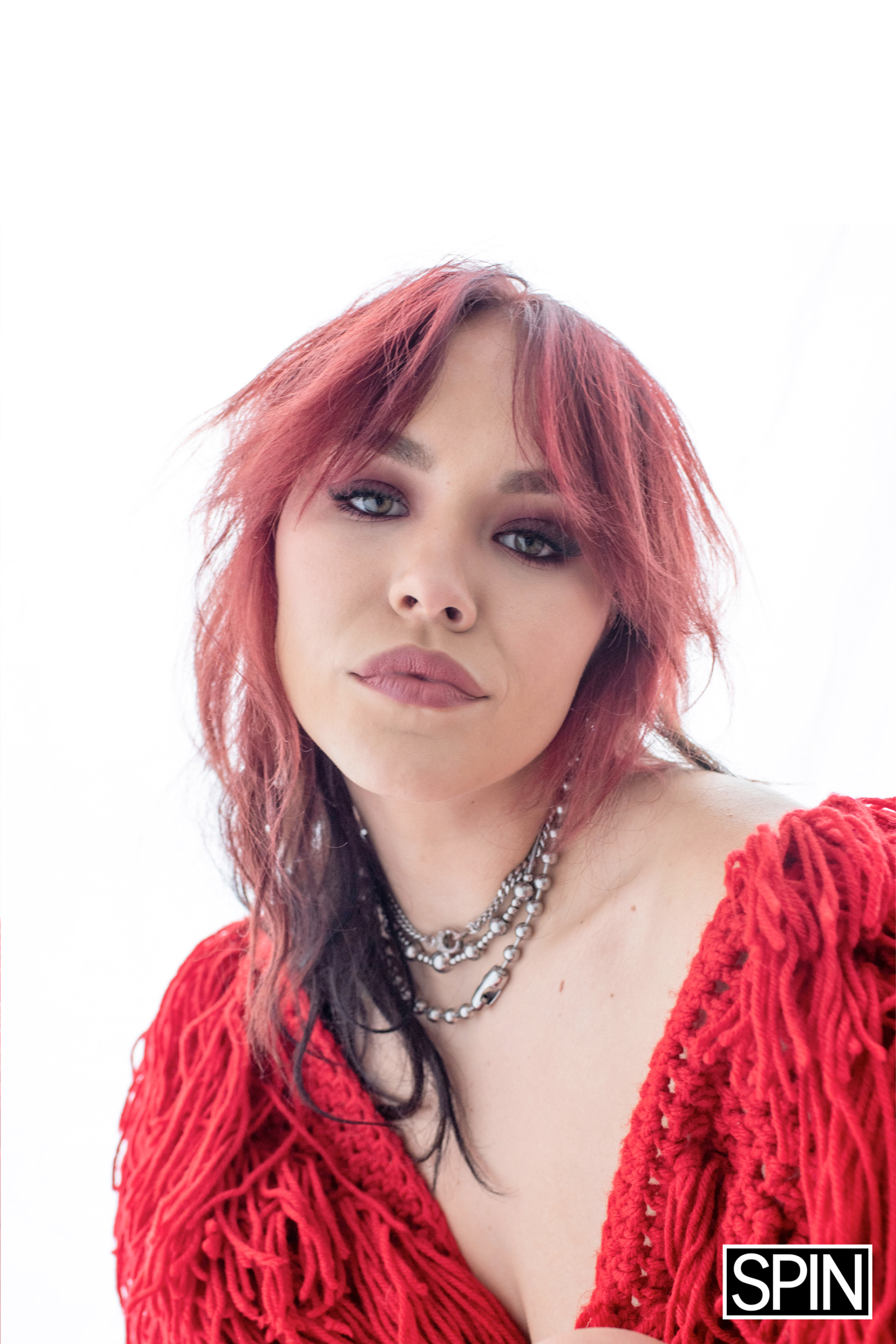
But right now, it’s a quiet, chilly night in this unassuming working-class neighborhood in the north-eastern part of Los Angeles. Still, she leaves the garage door up as dusk falls, enjoying just being still in the cold air.
The night before, she’d gotten back from Nashville, where she spent a few days in songwriting camp.
“I’d gone straight to the airport from the bar where I was meeting up with my old friend Max Frost, who used to live here but lives in Nashville now,” she says. “Then I went straight into my [Los Angeles] writing session, extremely hungover, and wrote two amazing songs that I love. And then I didn’t even go home. Went and saw my friends right after. And then went home.”
When she got back, it was to a room set up for her regular live-streams, often building one-woman versions of her own songs, instrument-by-instrument and vocals all in real time. In that crowded space, she rehearsed a bit for an upcoming show before going to bed.
Soon she’ll finish packing for a flight the next morning to San Antonio, for a one-off show before turning around to head back home, where there’s more writing, more studio work, and a photo session for this cover on the schedule. In April she will resume her first headlining tour (billed as “This Is My First Headlining Tour”), which she started last fall.
She loves it.
“I like bouncing around,” she says.
She is 24, after all. She uses the word iconic a lot. And sick.
“I don’t love to be in the same place for a long time right now.”
She riffs on it in her song “Antsy,” from Sagittarius. She’s even selling merch emblazoned with the song title, as if a mantra. The bouncing has been working for her, the unsettledness, somehow, helping give her focus.
“I go through phases, but I think because of that chaos, it has made me learn to be really present in whatever I’m doing. I haven’t always been that way.”
So she embraces it, joyfully.
“Everyone just tells me, ‘One day you're not going to love this so much.’ But as of right now, it’s so much fun. It’s amazing.”
At the top of the drive is a nondescript, boxy duplex, half of which she currently shares with friends Kyle Reith, a musician and producer who did several tracks on her Sagittarius EP (the garage studio is really his, though she has full access), and Andrew Currey, an artist. She’s lived here since, five years ago at age 19, she drove overnight in her Honda from Phoenix, where she was born and raised.
“I drove like six hours through the night to go to a meeting with a publisher,” she says. “And it was like out of a movie. I had driven to where the I-10 meets the 5 and you see the downtown skyline. I was like, ‘I made it!’ And I got in a car accident within five minutes of being in Los Angeles. I was fine, but a gnarly accident. And I was like, ‘That was my welcome to L.A.?’ So it was kind of like it can only go up from here, which it did.”
In her first two years here, she says, “I wasn’t miserable, but I wasn’t stoked. It was hard to make friends at first. And being 19 and starting in the music industry, trying to figure out what I wanted to do for my music, figuring out, like, who I am. It was a lot of getting lost and then finding myself again.”
The path was set, as is often the case, following a confrontation with her parents, Mike and Lisa. She was 17 and coming to the end of her time at the Arizona School of the Arts. Music was the only thing that had interested her in school. Well, dance too. But the general academics, not so much.
“I went to this performing arts school and I was doing classical training all day, but I was recording albums in high school and playing shows,” she says. “So it was very clear, music was the only thing I was drawn to. So when it was time for everyone to start picking colleges, my parents sat me down.
“They were like, ‘You should just do music and move to L.A.,” she says. “And I was like, ‘That’s not what parents are supposed to say!’”
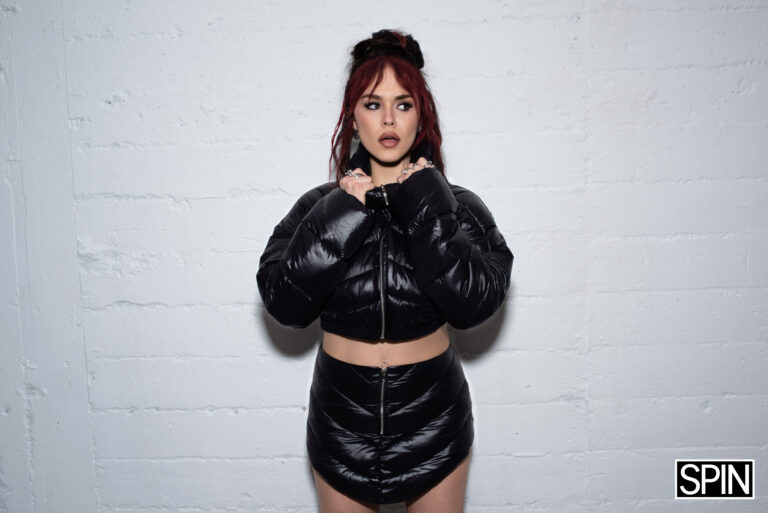
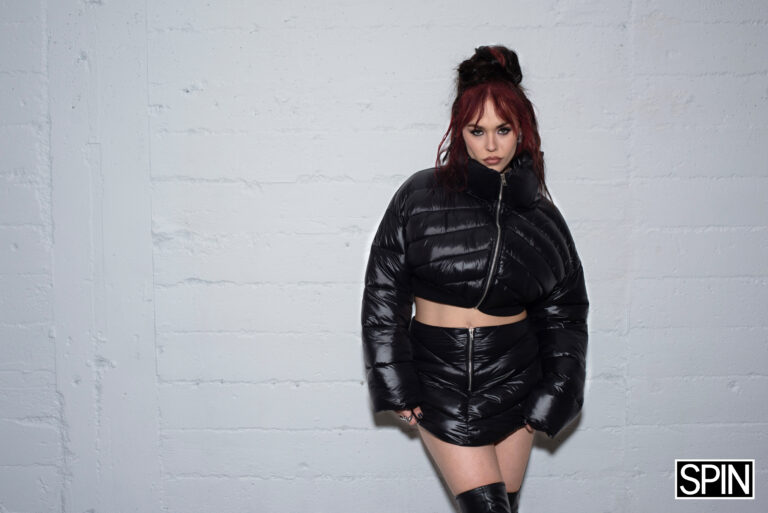
She laughs.
“I went to college prep school. My whole life was like, ‘If I don’t go to college I’m a failure!’ And they were just like, ‘We think you should do music.’ And I remember being so mad. ‘I’ve been in a college prep for 10 years. They're supposed to force you to go to college.”
She flips her forearms in a criss-cross X.
“Totally opposite!”
She could have seen it coming. Her dad has been playing bass in punk and rock bands since before she was born, continuing to this day.
“He was in a band called Man Dingo during most of my childhood,” she says, though he also has the steady life as co-founder of the Phoenix promotional goods firm Orange Planet. “And then he was in a band called Stereotyperider that was more rock. He’s in a couple now that play shows around Phoenix. He’s in like a stoner-rock band called Surf Through Death that I love.”
Her dad took her to her first concert, Avril Lavigne at a Phoenix arena, when she was just 6. She grew up idolizing Gwen Stefani. There are family videos of her asleep on the couch while one of her dad’s bands was rehearsing in the living room.
She started making music on her own at 5. By 14, with some help from Dad, she was recording and releasing her own material, putting three albums (as Taylor Upsahl) out while she was still in high school. The several songs that still can be found on the internet show a winsome, semi-acoustic approach showcasing a lovely, if young, voice and some legitimate chops as both a writer and musician.
In 2015 she posted a video of herself doing an acoustic guitar version of Max Frost’s “White Lies” on YouTube. That later drew the attention of Frost’s managers, industry veterans Ron Shapiro and Joe Hegleman, who signed her in 2018 to their Have Fun Management company, which, in turn, got her signed as the first artist on Sony’s then-newly-relaunched Arista Records.
“When I first met my manager Joe, I had blonde hair and would wear little sundresses. I hadn’t fully locked into who I was. But somehow he saw something in me and has been literally my ride or die ever since. But I remember when we were having the conversation. ‘Taylor Swift. What are we going to do?’ And I was like, ‘Alright, let me think.’
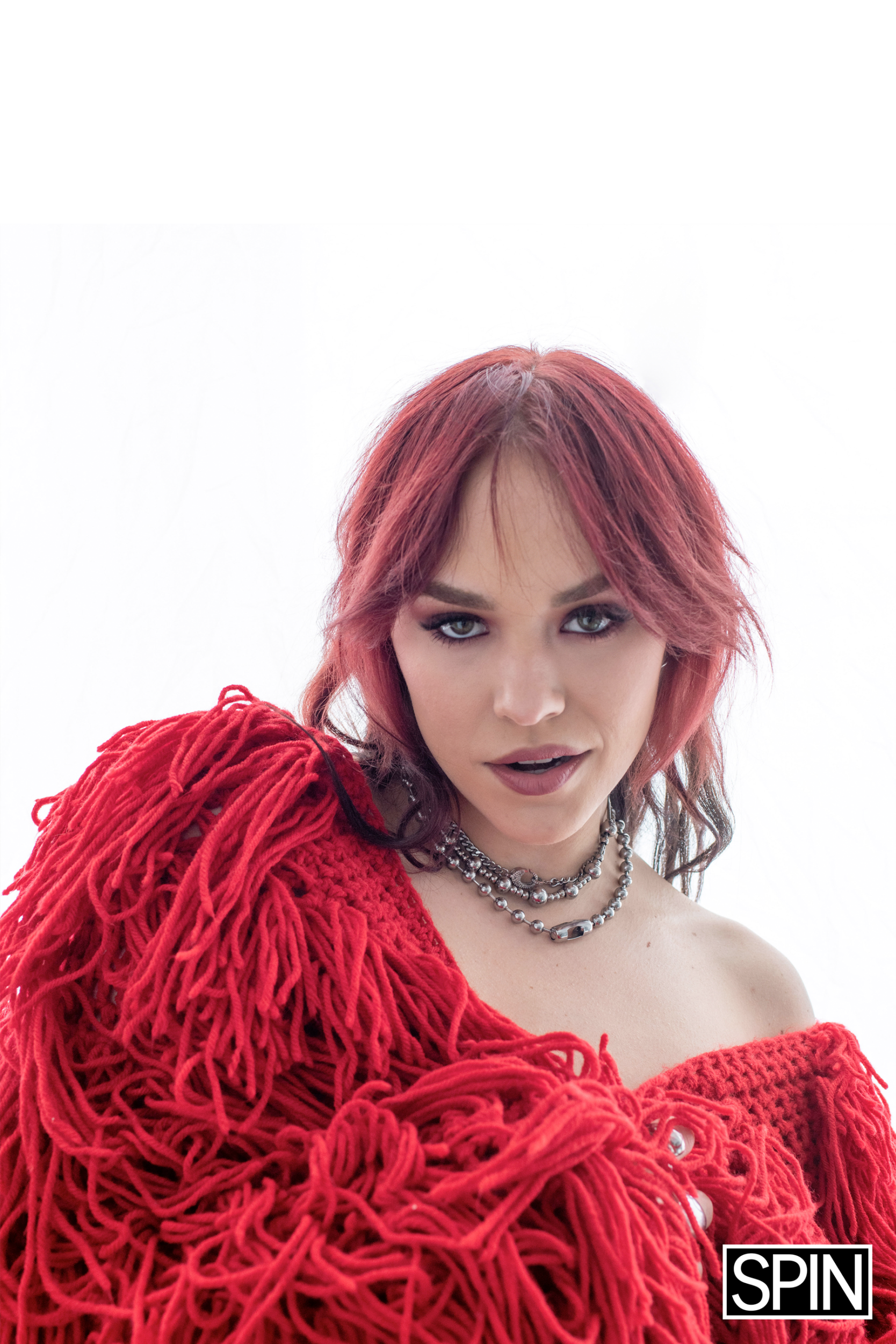
She thought about other women who had adopted performing names. Lorde, Lady Gaga, and Madonna, names that get attention.
“And then I was like, ‘Well, my family’s last name’s weird. That’s kind of cool.’ And because my family has played such a big part in me being into music and had been so supportive, it just kind of made sense. And people still pronounce it wrong and spell it wrong. Whatever. But it was just the one thing that felt very true to me.”
For the record, it’s of Norwegian origin, part of her heritage, and it’s pronounced Up-Saul.
While paring her name was done for pragmatic reasons — “There can only be one Taylor,” she says — it gave her a sense of strength.
“I definitely like the power I felt when I changed my name,” she says. “I was like, ‘I am UPSAHL! That feels good.’ It was a conversation I had with myself, like, okay, obviously I know who Taylor is when I’m just chilling alone or with my family. But who is UPSAHL? What version of Taylor is UPSAHL? It was such a self-discovery process. Going back to 2020, I think that’s when it clicked for me. ‘This is who I am. It makes sense.’”
UPSAHL is theatrical, dramatic, everything expressive and explosive — her sexuality, fears, pique are all up front, whether trashing her ex (the pop-punk slam “Douchebag”), wrestling with image expectations for young women (the clubby electro-popper “Into My Body”) and the media and cultural misogyny that comes with it (the thumping single “Monica Lewinsky”). Or simply wishing for a restful night’s sleep (the restless “Melatonin”).
But Taylor is more down-to-earth, focused, friendly, at home in her hoodie and torn, baggie sweats. Designer sweats, but sweats nonetheless. Sitting sideways in a backwards desk chair, she presents an image hard to match with the highly styled, uninhibited person in the photos and videos — though to be fair, her many at-home video performances and TikToks lean more to the Taylor side.
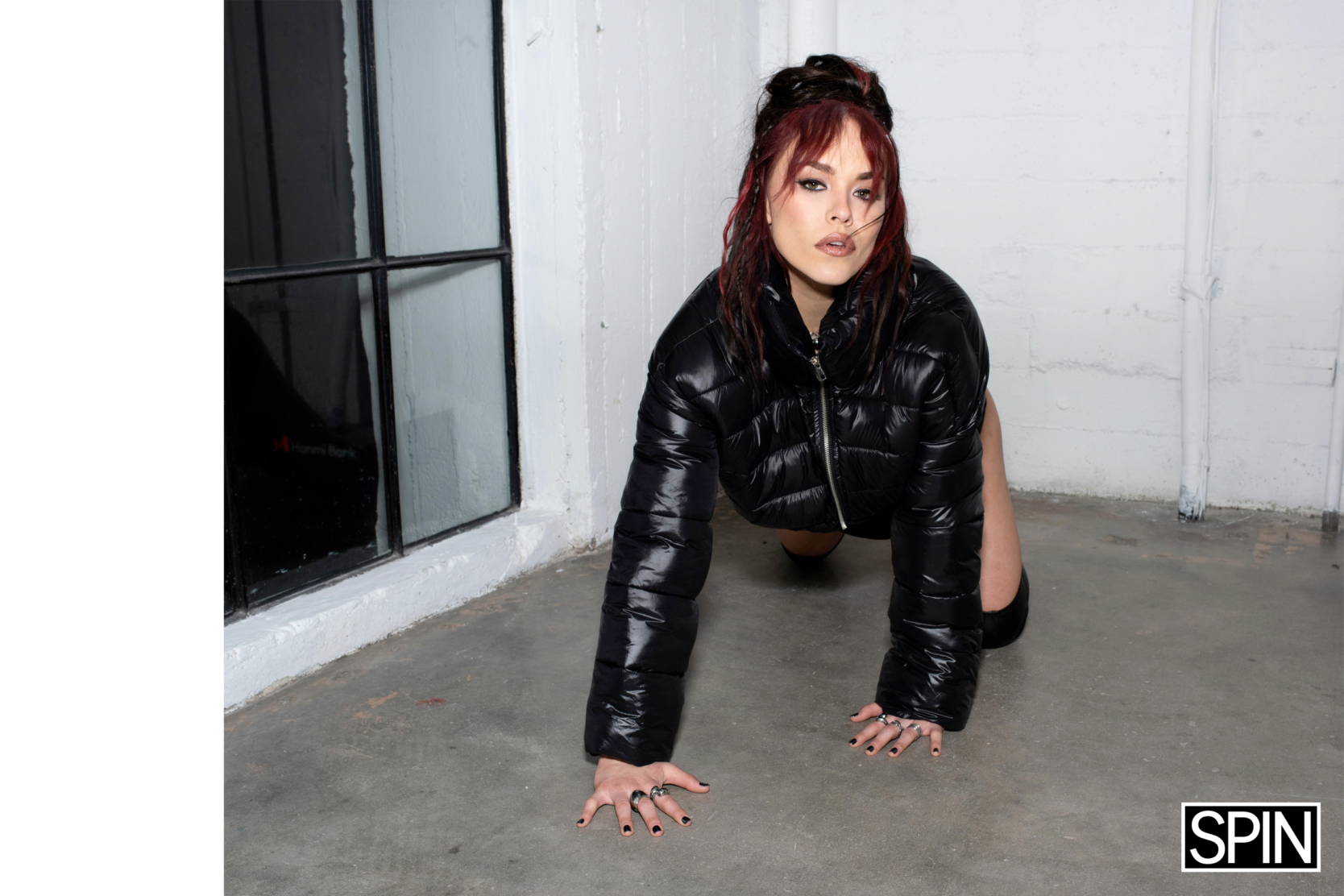
She released several songs in 2018 and then an EP, Hindsight 20/20, in 2019, with “Drugs” as the single, and she went on the road, at times opening for now-friend Frost. Another EP, Young Life Crisis, came in late 2020. At that point, of course, touring was off due to the pandemic. Not long after she went through a devastating breakup. All of that played into the creation of her album, Lady Jesus.
Some things happened fast, the co-writing gigs in particular. Others went slowly. Her own music did well, but wasn’t exactly lighting the charts on fire. “Drugs,” in particular, hadn’t done as well as she had thought it might, though when she and her friend Sean Kennedy wrote it, they didn’t take it too seriously.
“I’m talking like everyone in L.A., saying that I only came to the party for the drugs,” she says, explaining the lyric core to the song.
She thought there was no way the record company would release it and on some level hoped they wouldn’t, scared that people might think the attitude was really hers, not a snarky diss. But with Arista loving it, she let it out. It did “fine,” she says. Not much more.
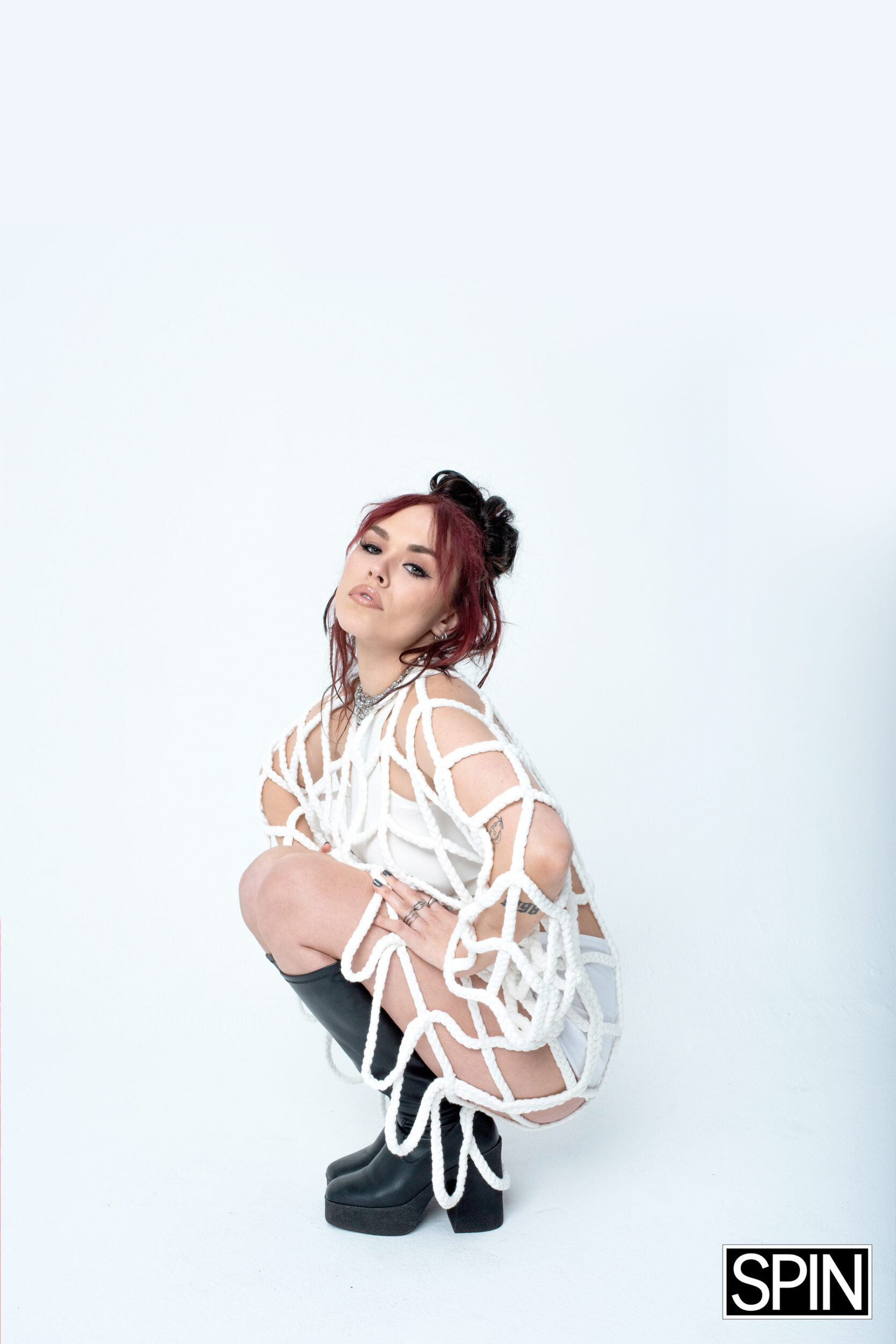
“Then after two years, I think it was my 21st birthday, all of a sudden everyone I knew was sending me these famous influencers making videos of my song,” she says. “And I was like, ‘Is this a joke? What is going on?’ It didn’t click until a few days later, and I was like, ‘Oh! I think our song is going viral! This is really sick!’”
Even people who didn’t know her knew the song. She was opening for Olivia O’Brien, UPSAHL’s first shows after the Covid shut-down, when that started to manifest.
“I would do my set and people were like, ‘I don’t know who this girl is. Whatever.’ And then I would do ‘Drugs’ and everyone would know it immediately.”
That overlapped with confidence-building collaborations with a few notables. “It’s been insane to get to meet and work with some of my idols, people I grew up worshiping,” she says. “I think a thing I’ve been dealing with is so much imposter syndrome, working with these people. What do they see in me? I have no idea. I’m just lucky.”
If she’s an imposter, she’s managed to fake it well. Take working with Shinoda. “It was on Zoom, during Covid,” she says. “It was me, Mike, my friend Pete Nappi who produces and Samantha Ronson writing. I was working out of my bedroom, and we wrote this song called ‘Happy Endings’ about the state of the world at that time. Then I tracked the vocal on my SM7 [microphone]. I was like, ‘Whatever, this is just a demo, they’ll get a really sick chick to sing it.’ And Mike called me one day and said, ‘I think your vocal’s just right for the song. Do you want to stay on it?’ And it was like, again, imposter syndrome. ‘Are you kidding?’”
It was even harder to keep cool with Big Boi.
“I had a little OutKast mixtape that my parents made of songs I was allowed to listen to,” she says. “And then I got to be on a song with Big Boi, which if you told me that as a kid, I would’ve lost my shit. It just puts things in the perspective of going back to your inner child. I feel like it’s so easy to compare yourself to other people. And comparing myself to me five years ago, or me as a kid fangirling over people I get to work with now, that is everything. It’s really cool.”
Her growing self-assurance powered the creation of Lady Jesus. But so did the shattering breakup. The title, flip as it may be, says it all.
“It happened when I was in Nashville during Covid, so it was hard to do sessions in person. So me and two of my best friends, collaborators Jonny [Shorr] and Will [Jay] were like, ‘What if we quarantined, we go to Nashville, we get an AirB&B, quarantine together, and make an album?’
“I was finally feeling grounded again and happy for the first time in a while. I was like, ‘I want to write about that.’” she says. “And Will Jay, who is an incredible writer, said. ‘Lady Jesus.’ I was like, ‘What are you talking about? That’s incredible.’ So we wrote the song, moved on, and at the end of the week listened to all the songs. I had an amazing shroom trip moment where I saw my album play out in time with how my life had played out in the past nine months or whatever. And everything just kind of led to this idea of Lady Jesus and this rebirth and this empowering thing. ‘Guys, we have to call the album Lady Jesus.’
“There’s a song called ‘Lunatic’ on my album. I wrote it from a place of so much anger. I saw something that really pissed me off that had to do with my ex, and for the first time in that era of my life I was just angry. I walked into the studio sobbing, got really stoned, and was like, ‘I just wanna scream in the microphone! I want to punch a wall right now.’ So we wrote this song about, like, fuck up your ex, basically. When I was piecing the album together, I was like, ‘Okay, this song is really good. But this is really embarrassing that I ever felt this way. This is a little too far.’ I didn’t want people to know that I felt this anger, that I was so sad over something.
“And then I had this internal conversation with myself. If I feel this way, even if I only felt that way for the three hours of making the song, someone has also felt this way and this song could be for someone else. I just had to swallow my pride. And I put out the song, and so many people have come up to me and been like, ‘This is what I listened to when I was angry about X, Y or Z. ‘ Or ‘This is what I listen to when I go on runs and it makes me feel like a badass.’ That was good because the song made me feel, honestly, so vulnerable and so ridiculous. So it’s cool that it empowers people now.”
Her own empowerment built with the Sagittarius songs, which came together as the world re-opened.
“It was a very chaotic process in the most beautiful way, which was very representative of why I called it Sagittarius. Obviously I’m Sagittarius and realized that, whether or not these five songs were telling a story like I was telling in Lady Jesus, each one represented a different part of me or a different character trait. They all feel like a different sonic world as well. This is me, basically. Some of the vocals were tracked in my tour van, under a blanket with my SM7. I just live for that.”
One thing that stands out with her Lady Jesus and Sagittarius songs is their brevity. Most of them are between two and three minutes, catchy and economical, saying what they need to say and then done. It’s a direct connection to the pop-punk that she breathed in growing up, a connection she keeps strong with her dad.
“Whenever I go home, which is as much as I can, we have a band room in the house and we play each other demos of songs we’re working on, and it feels like I’m just hanging out with a fellow songwriter sometimes,” she says. “It’s really fun.”
Maybe it’s a curse for an artist to have had a happy childhood, but UPSAHL holds it tight. She’s taking that family feeling on the road, with little sister Ryan, fresh out of high school, along as merch girl and emotional support companion. (They also have a younger brother, Corbin, who is 15 and in his own punk band — “like me cloned into a 15-year-old boy.”) A show in Boston was recorded and released as her first live album, This Is My First Live Album., on which you can hear her doing a shout-out to her sister.
It's really in that setting where you can hear the UPSAHL and the Taylor as one, still the 6-year-old going to see Avril with Dad. She sounds excited, eager, yet grounded.
Yes, she is ambitious. She wants a No. 1 hit. She wants a Grammy. But she’s loving her life now. She’s happy in her plain little duplex, in no rush to live the glamor life. And her goals for her touring side are modest — headlining clubs is cool, she says, maybe just a bit bigger in the next rounds.
She’s enjoying the now, not looking too far into the future, even if sometimes she has to create her own chaos to keep that state of mind.
“Sometimes when I’m in town, I’ll invite everyone I know to the house. I had a ‘Feral February’ party that was really fun. I like themed parties. We want drama! I’d been seeing the word feral on TikTok. Like crazy, chaotic, feral. Me and a lot of my friends did Dry January, and on tour I don’t drink. And I was like, ‘The second this is done, Feral February starts. That was always the joke.”
The March party hasn’t been scheduled yet, but she has the theme. “March Menace! We’re gonna be menaces. I need to figure out what April’s going to be.
“I feel so lucky, because my life is so chaotic. I have the most grounding people around me, which is amazing,” she says. “I mean, I love the chaos, and I definitely think there’s going to be a time in my life where I’m not going to love it anymore. But while I love it….”

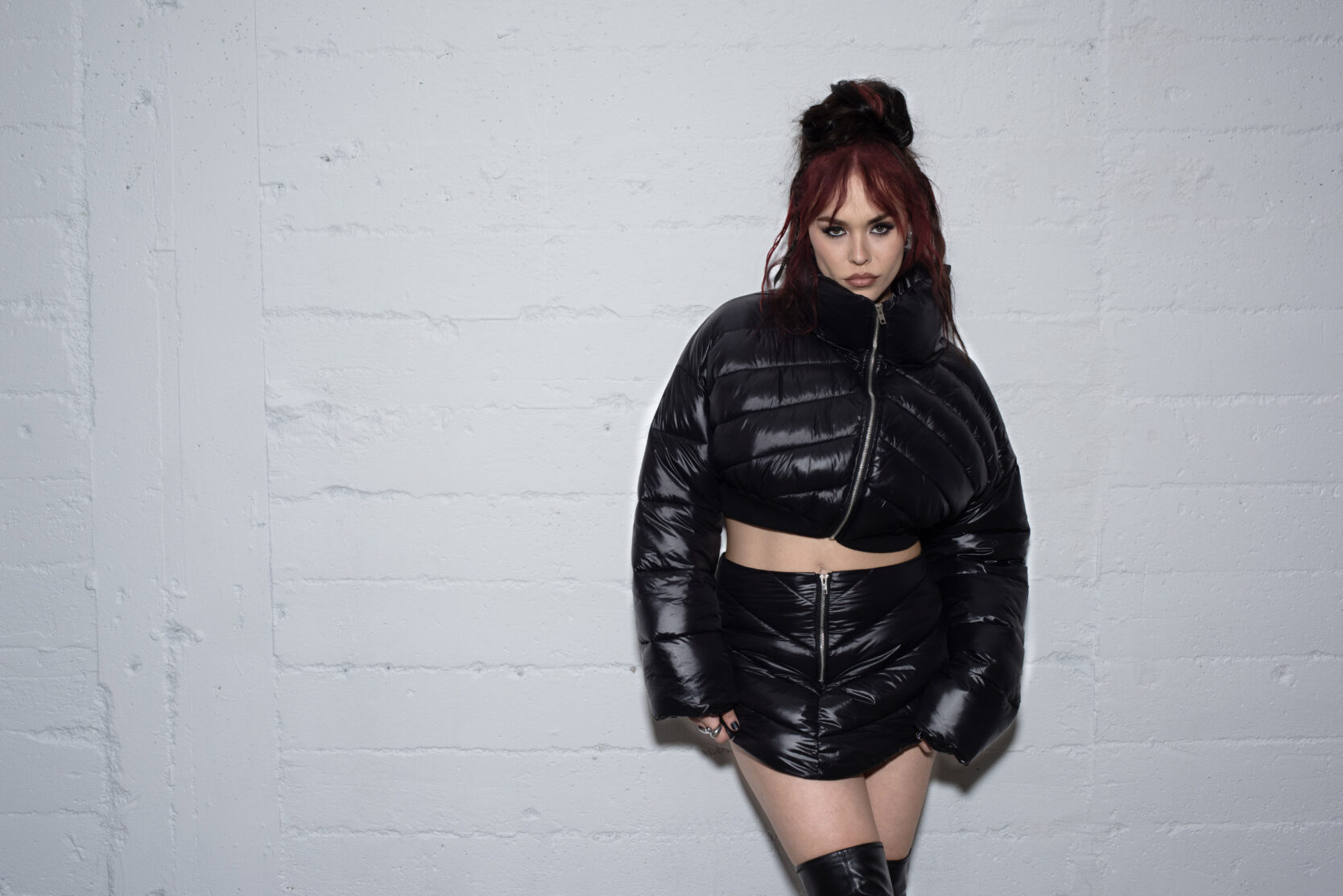
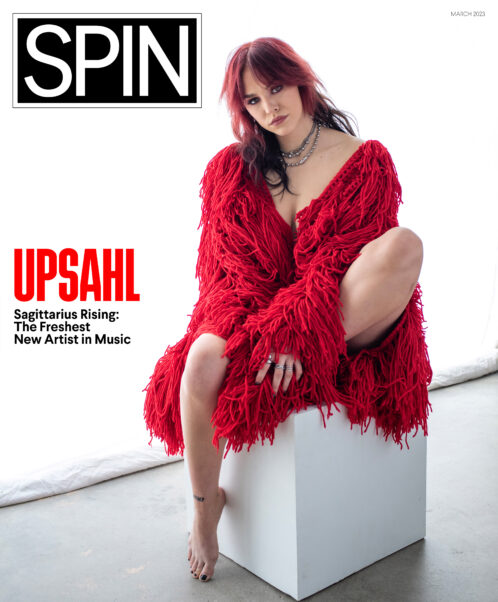
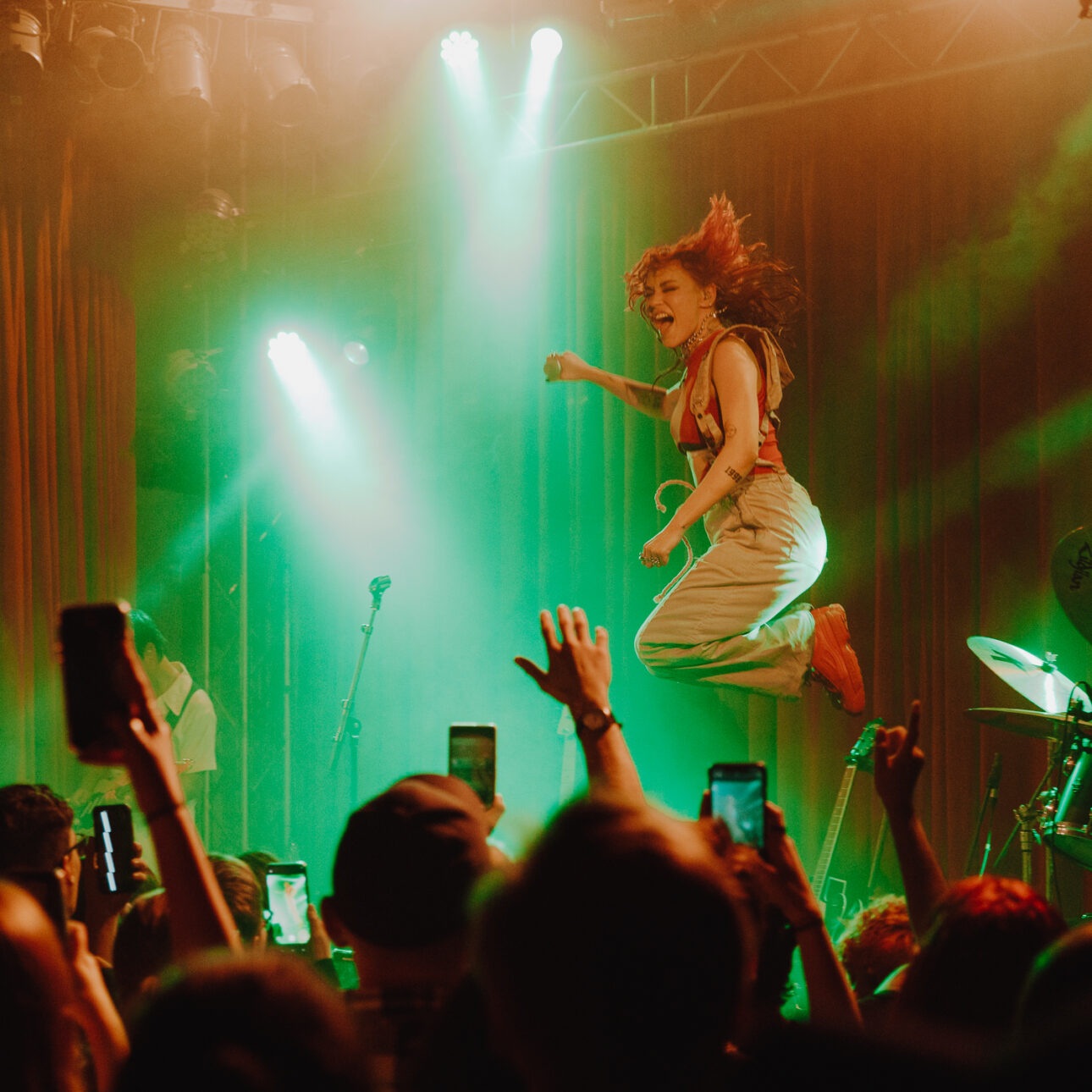 Photo Credit: Aubree Estrella
Photo Credit: Aubree Estrella
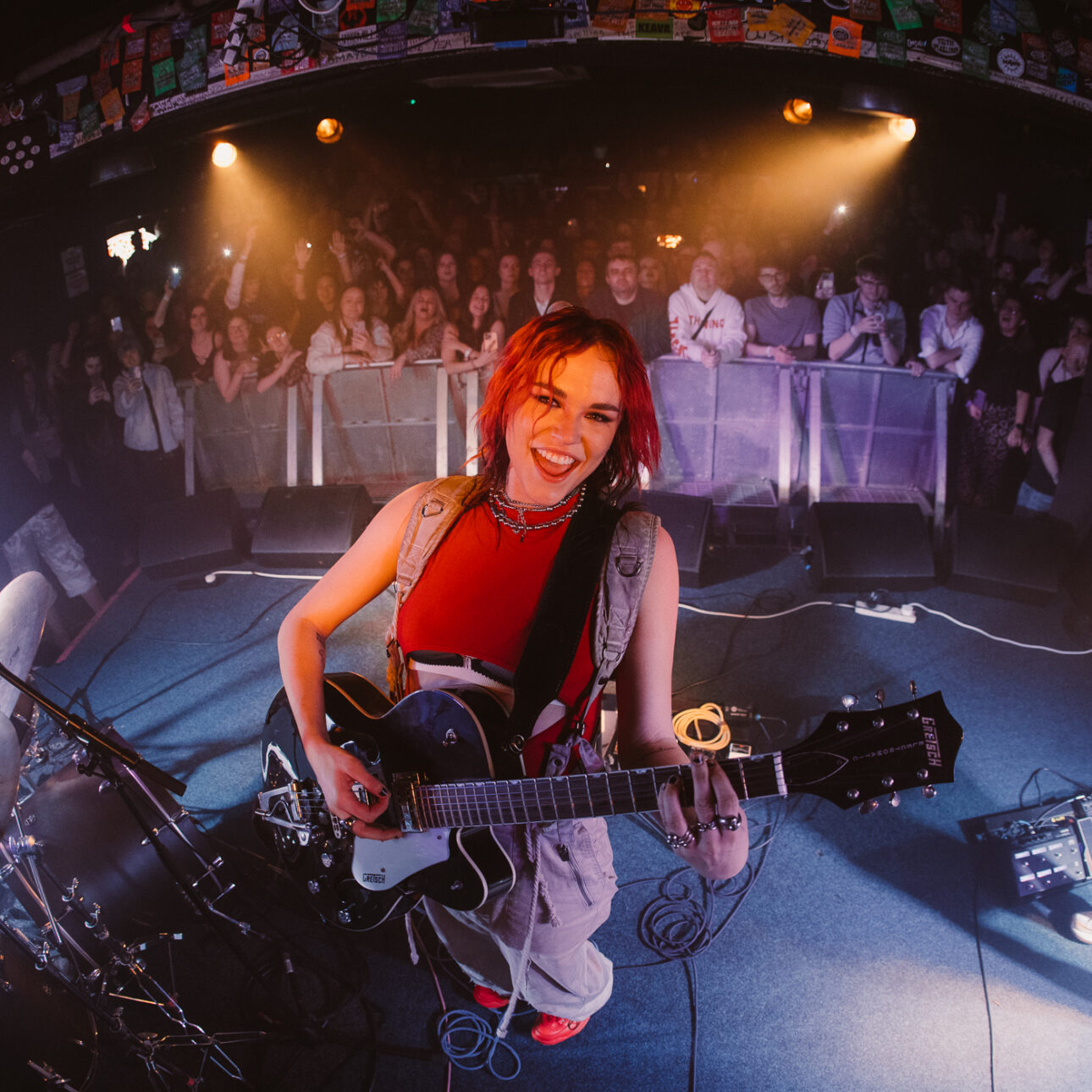 Photo Credit: Aubree Estrella
Photo Credit: Aubree Estrella
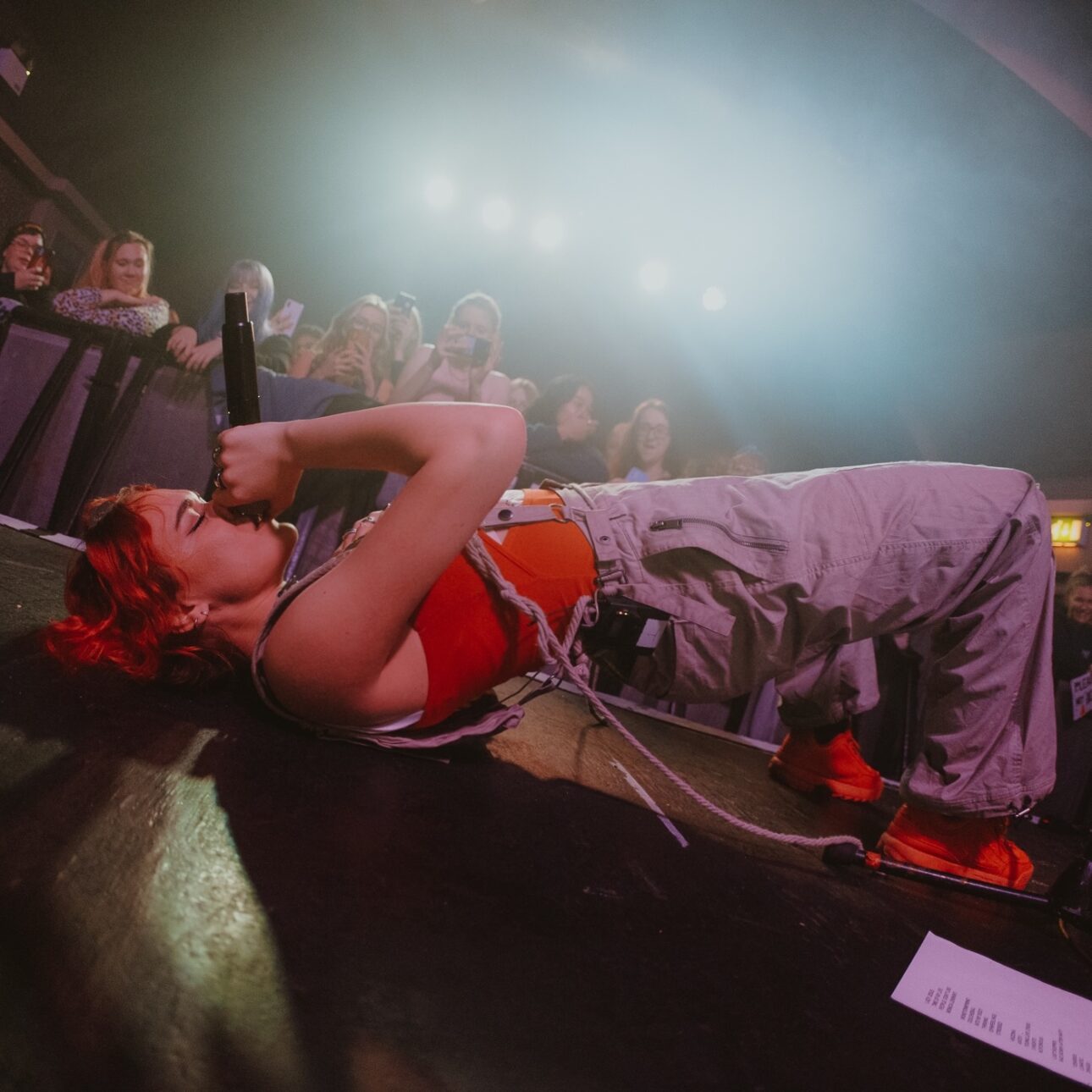 Photo Credit: Aubree Estrella
Photo Credit: Aubree Estrella
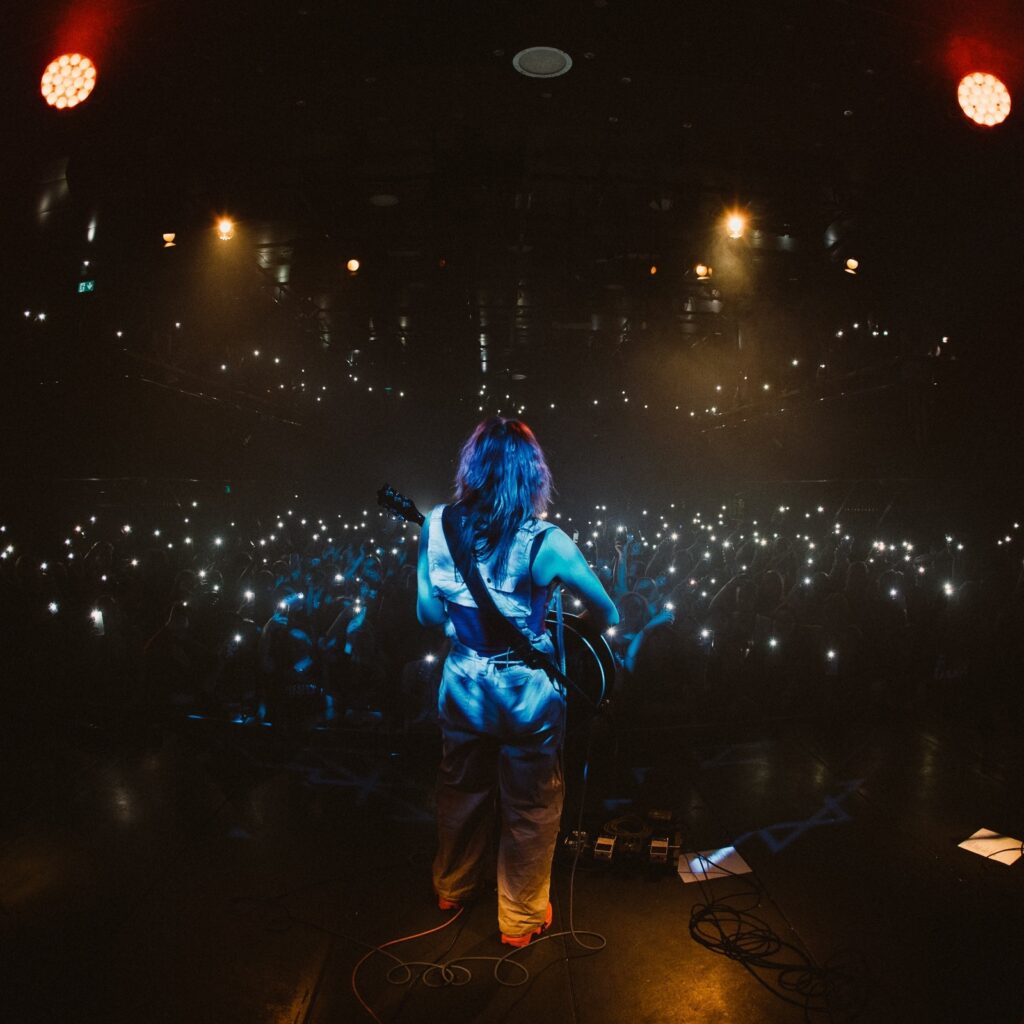 Photo Credit: Aubree Estrella
Photo Credit: Aubree Estrella
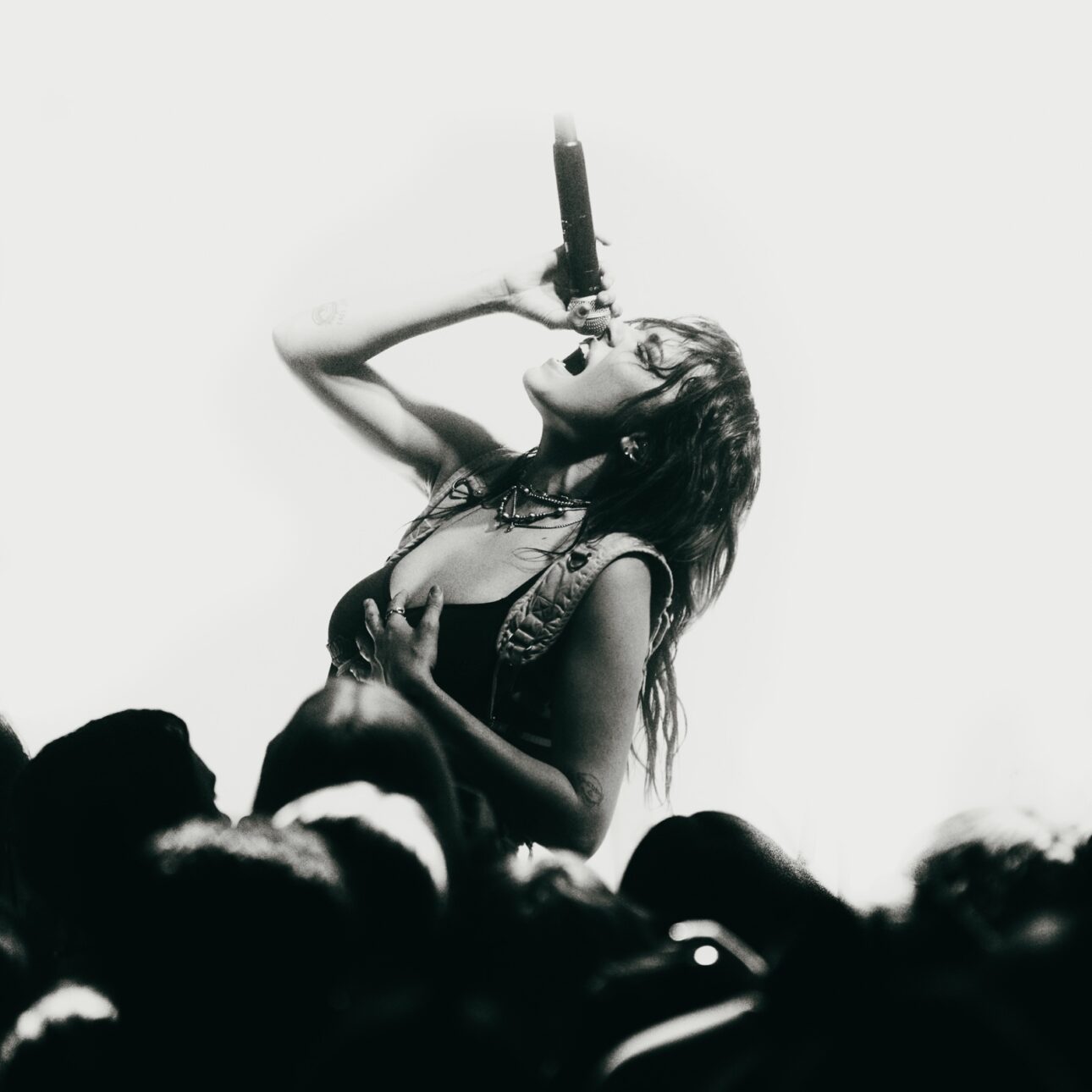 Photo Credit: Aubree Estrella
Photo Credit: Aubree Estrella
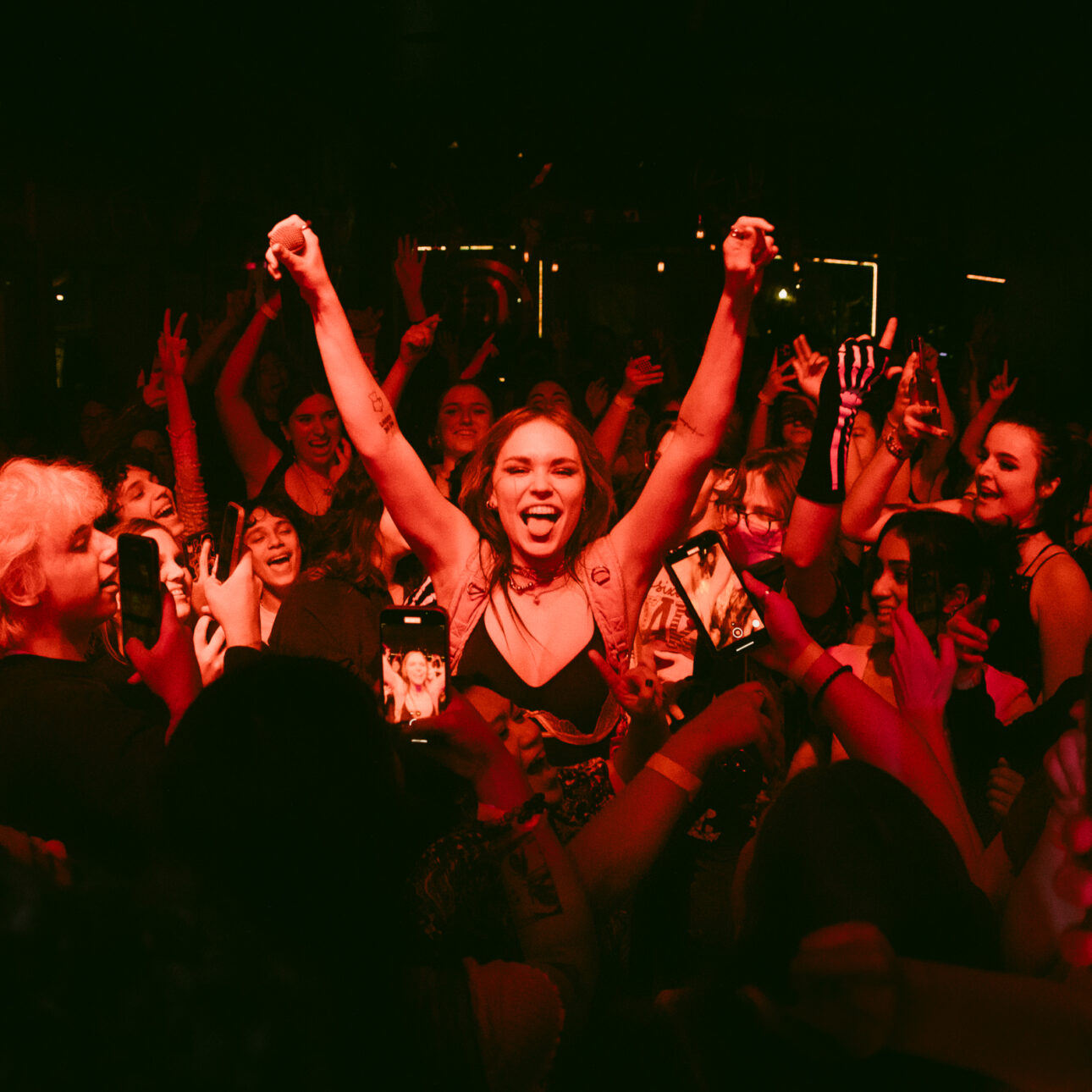 Photo Credit: Aubree Estrella
Photo Credit: Aubree Estrella
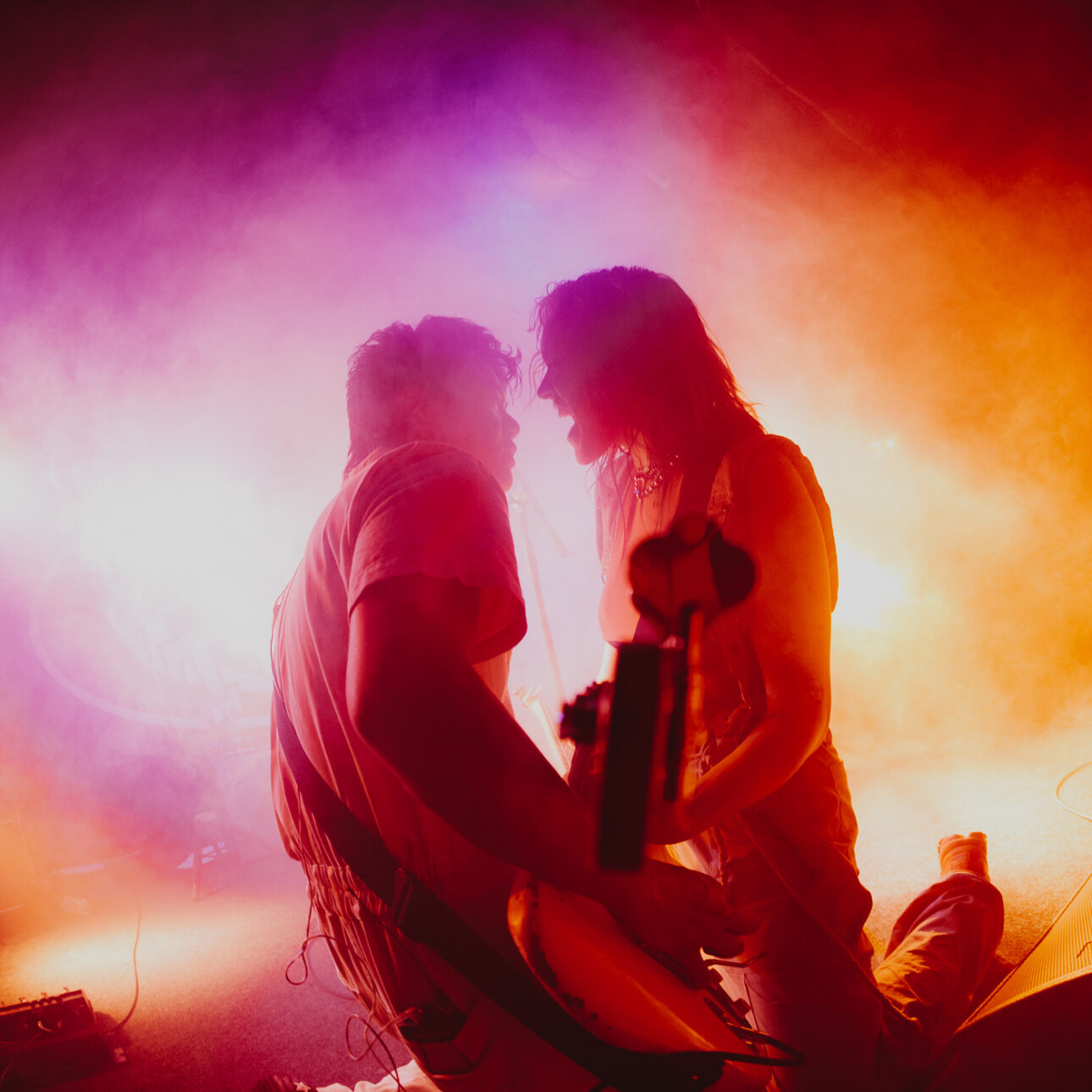 Photo Credit: Aubree Estrella
Photo Credit: Aubree Estrella
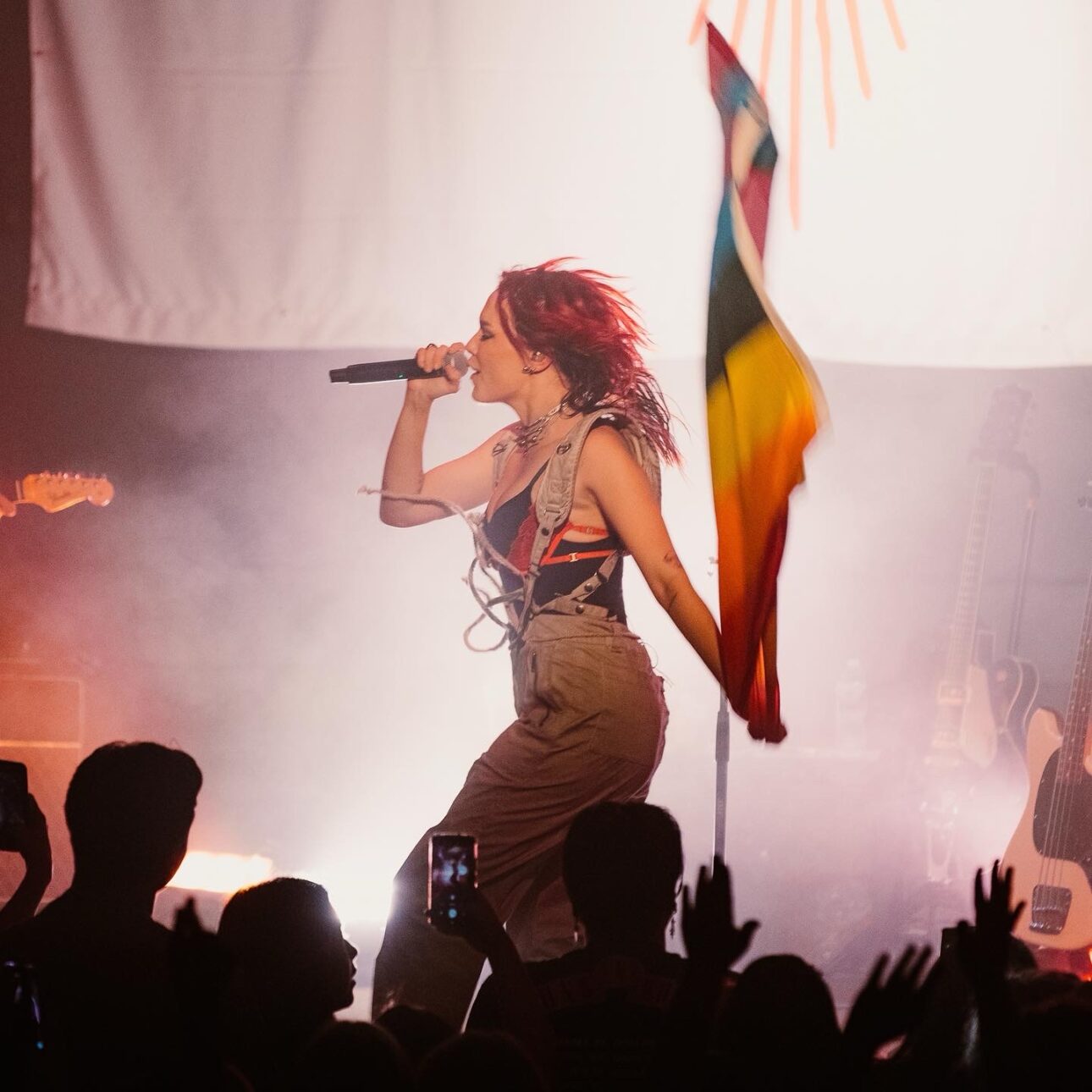 Photo Credit: Aubree Estrella
Photo Credit: Aubree Estrella
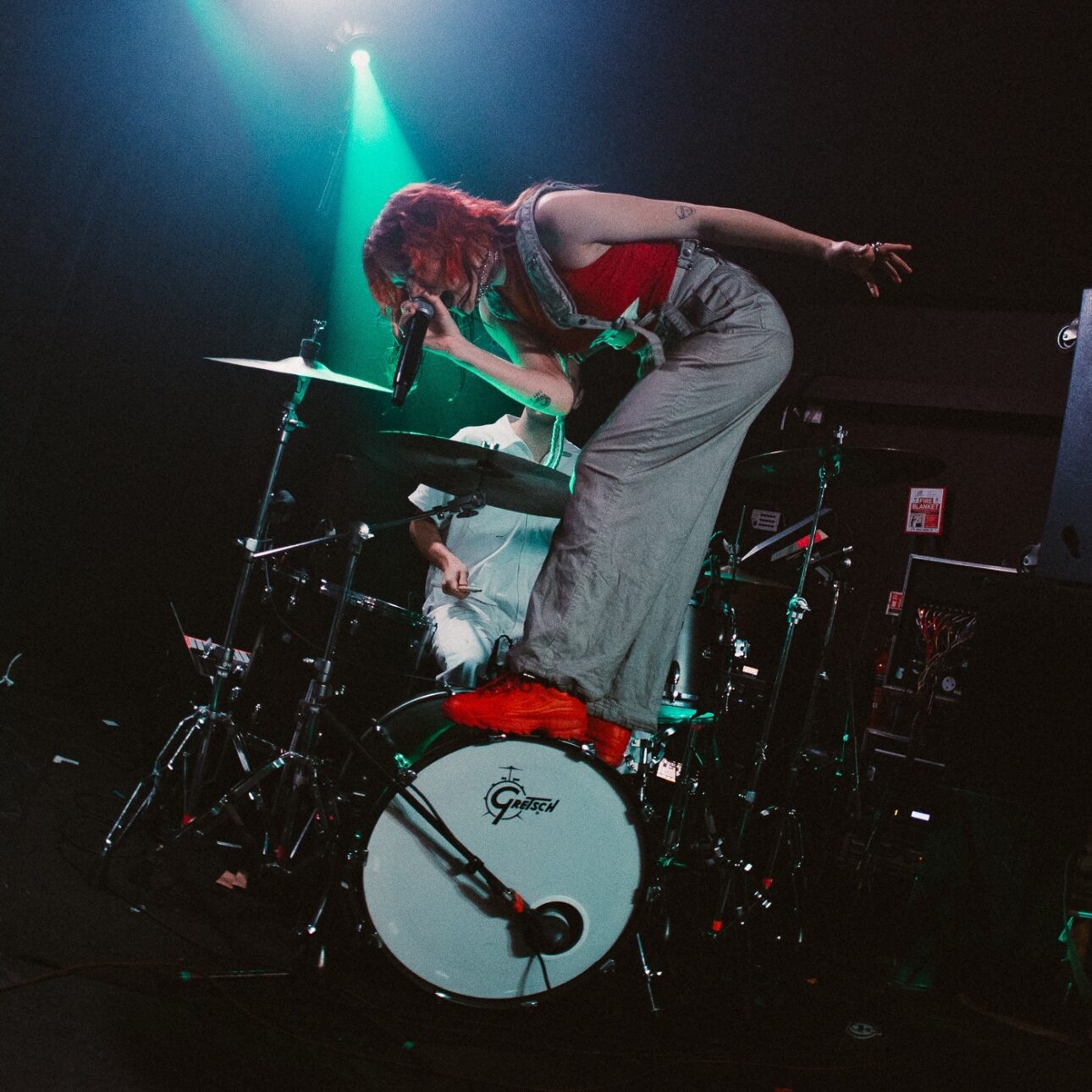 Photo Credit: Aubree Estrella
Photo Credit: Aubree Estrella
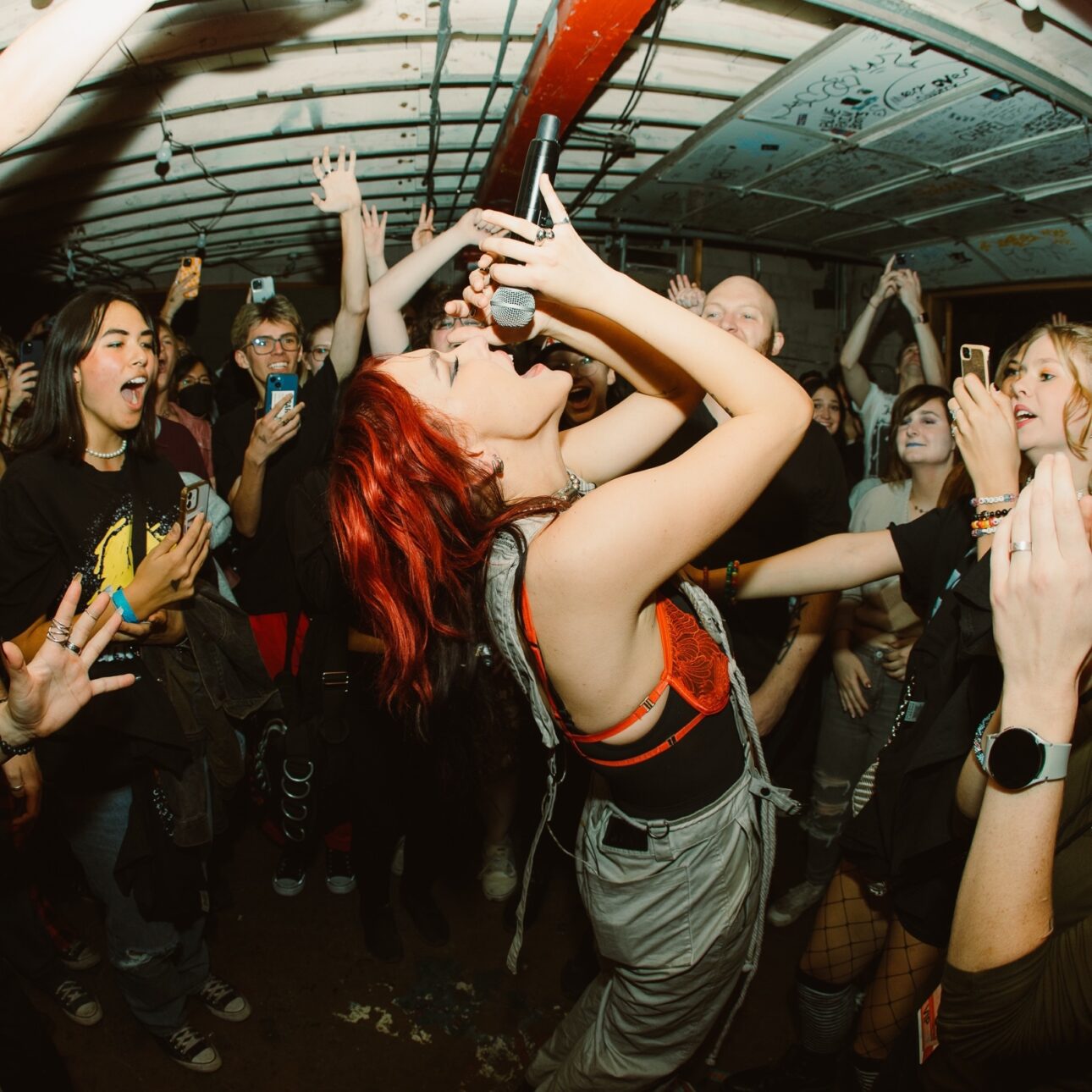 Photo Credit: Aubree Estrella
Photo Credit: Aubree Estrella


